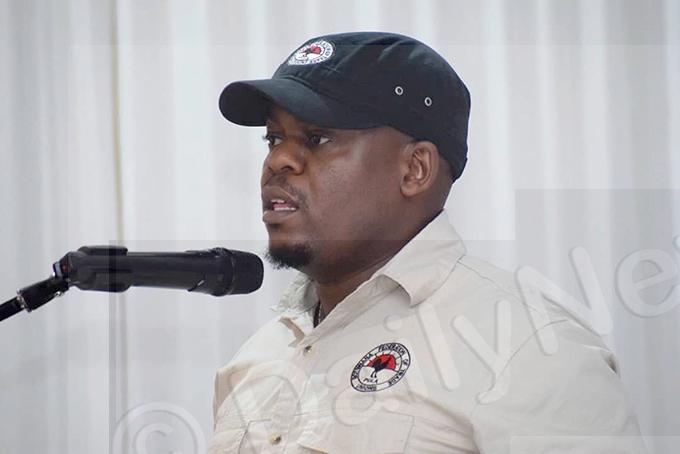Botswana handles six cases of human trafficking
07 May 2024
The Ministry of Justice has revealed that currently Botswana is handling six cases of human trafficking.
Speaking at a one-day anti-human trafficking awareness workshop organised by the Ministry of Justice, Deputy Permanent Secretary (Human Rights and Equity), Ms Thobo Letlhage disclosed that the six cases involved 14 victims, two of whom were Batswana.
Ms Letlhage said while six cases may seem small, human trafficking was a notoriously under-reported crime, often because victims feared retribution from their traffickers or because they were unaware that they were being trafficked.
“We must recognise that human trafficking can be difficult to detect and the number of reported cases may not reflect the true extent of the problem.” she said. “To effectively address this issue, we must focus on raising awareness among potential victims, improving our ability to identify trafficking, and encouraging victims to come forward and seek assistance.”
The nature of trafficking cases in Botswana, Ms Letlhage said out of the five cases recorded, three involved sexual exploitation, one involved labour exploitation, and the remaining case was categorised as ‘unspecified’.
“These cases illustrate the diverse forms that human trafficking can take, from forced prostitution to labour exploitation,” she said. “This highlights the need for a comprehensive understanding of trafficking and an ability to recognise its various manifestations.”
Ms Letlhage said Botswana had launched a comprehensive ‘Action Plan to tackle human trafficking, which aimed to prevent trafficking, protect victims, prosecute traffickers, and promote partnerships in the fight against this heinous crime.
She said Botswana had identified key strategies to prevent human trafficking, including educational campaigns, community outreach programme, and increased border security measures.
She explained that the Action Plan emphasised the importance of providing support and assistance to victims of trafficking, including shelters, legal aid, and rehabilitation services.
Ms Letlhage said Botswana did not have state run centres for victims of human trafficking, the reason why victims of human trafficking were kept in safer places such as hotels.
“They are not supposed to be treated as prisoners, but as victims,” she added.
This was after the workshop heard that the 40 Ethiopians who were intercepted at Ngwasha gate last year were kept in a hotel around Francistown not in prison or at the Centre for Illegal Immigrants at Gerald Estate.
The workshop also heard that 39 of the victims had since escaped from the hotel, leaving one victim and the three truck drivers, a South African and two Zambians. The three drivers are still held in police custody and they are continuously appearing for mention with charges of smuggling in persons.
The National Programmes Officer at the International Organisation for Migrants (IOM), Ms Masedi Mosa-Sebele, said Francistown was one of the hottest spots for human trafficking in Botswana, which was treated as a transit route for the smuggling of persons.
She explained that Francistown’s strategic location along key transportation routes put the second city at risk for human trafficking.
Ms Mosa-Sebele said combined with its high volume of traffic, including trucks transporting goods to and from other countries, the city had created an environment in which human trafficking is a significant risk. Its proximity to borders made it a prime target for trafficking networks.
She said women and children remained at the epicentre of the human trafficking and smuggling ‘epidemic’. Ms Mosa-Sebele said the interdependence of women and children in these scenarios was often a key factor contributing to their heightened vulnerability.
“When seeking work abroad, women frequently bring their children along, believing they can better protect and provide for them in this way. However, this can inadvertently make them easier targets for traffickers and smugglers, who prey upon their desire to care for their offspring,” said Ms Mosa- Sebele.
She explained that traffickers and smugglers often exploited women’s traditional roles as caregivers by promising opportunities that would allow them to provide for their families.
She added that in many countries, women and children lacked access to quality education and job opportunities, making them desperate for any means of income, which could lead to exploitation.
She said women and children were often affected by natural disasters, conflicts and other humanitarian crises, making them more likely to flee their homes in search of safety and stability. ENDS
Source : BOPA
Author : Thamani Shabani
Location : FRANCISTOWN
Event : One-day anti-human trafficking awareness workshop
Date : 07 May 2024





